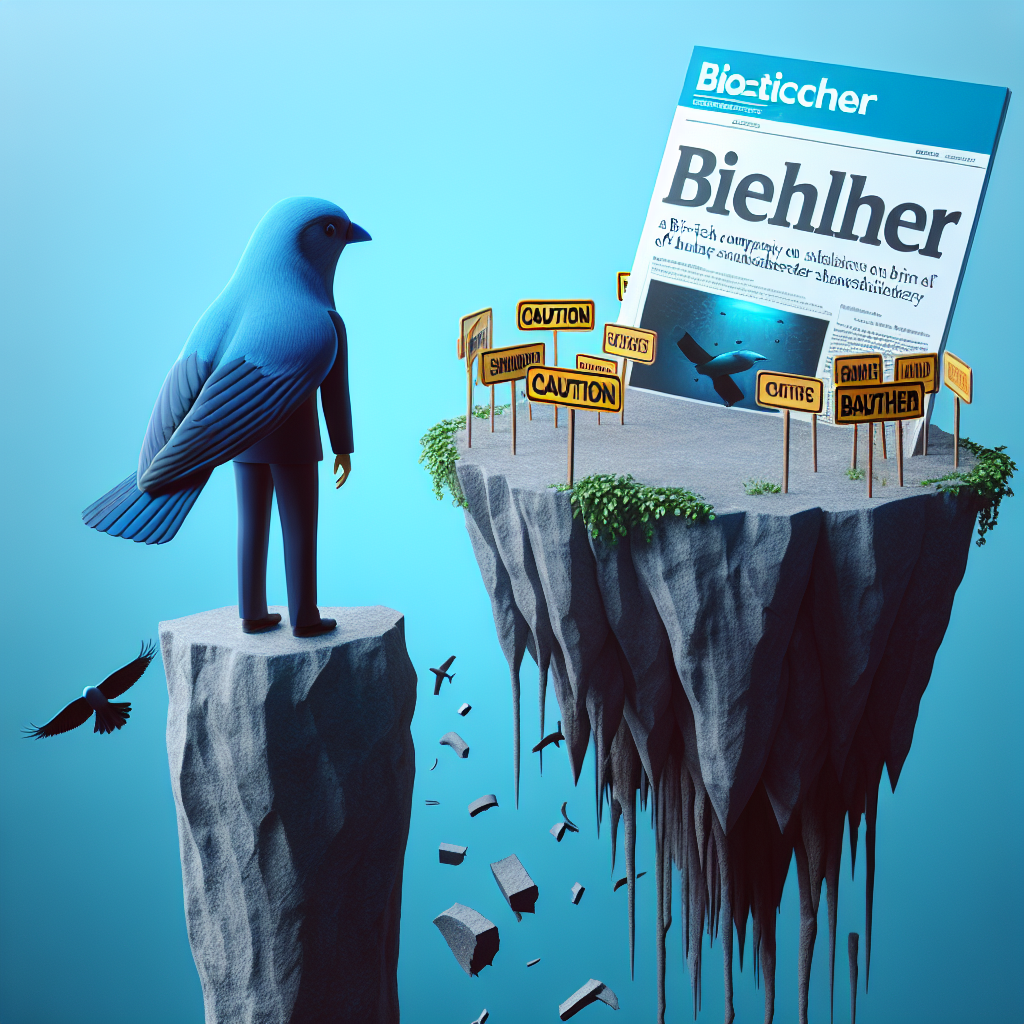Bluebird Bio Warns of Potential Bankruptcy as Buyout Faces Another Delay
In a concerning turn of events for Bluebird Bio, the company has warned investors of potential bankruptcy as delays in its acquisition by Carlyle Group and SK Capital continue to mount. The situation exemplifies the volatility within the biotech sector, especially among companies reliant on profitable exit strategies for survival.
Shareholder Hesitation Raises Alarm
As of now, only about 25.6% of Bluebird Bio’s nearly 9.8 million outstanding shares were tendered for the proposed buyout, which requires a threshold of greater than 50% for the transaction to be officially executed. This significant shortfall has compelled Carlyle and SK Capital to once again extend the deadline for shareholders to tender their shares, with the new deadline set for May 28, 2025.
The initial deadline was set for May 12, and this is not the first extension; it marks the fourth adjustment as the buyers seek to gather enough shareholder support. Such delays have raised questions about the investors’ confidence in the future of Bluebird Bio and its commercial prospects.
The Offer and Commercial Viability
The acquisition aims for a purchase price of $3 per share along with an additional $6.84 per share contingent upon the performance of Bluebird’s three gene therapies: Zynteglo, Lyfgenia, and Skysona. The contingent value rights hinge on the therapies generating $600 million in combined sales over a consecutive 12-month period by the end of 2027. Given the company recorded only $83.8 million in total revenue for 2024, this milestone may be challenging to meet.
Even without the contingent payment, the transaction holds a valuation of approximately $29 million, a stark contrast to Bluebird’s past valuation of $10 billion. Such a devaluation underlines the hardships the biotech firm has faced in the fierce and increasingly competitive market of gene therapy.
Potential Outcomes and Financial Risks
Bluebird Bio has communicated to its shareholders the critical nature of tendering shares quickly, cautioning that failure to complete the acquisition could lead to severe consequences, including the risk of bankruptcy or liquidation. The company stated that the absence of a successful merger poses a “significant risk of defaulting” on its loan agreements with Hercules Capital.
If the merger fails by the new deadline of June 20, Bluebird Bio would face imminent default, further intertwining operational survival with the acquisition’s success. According to the annual report, the company’s existing cash reserves may only support operations into the second quarter of 2025, which began in April and will conclude in June.
Investor Confidence and Market Reaction
Despite the clear financial pressures, some investors appear to be strategically withholding their shares, perhaps hoping for a superior offer. This speculation isn’t unfounded, as potential rival bidder Ayrmid had initially presented an interest at $4.50 per share in late March. However, Ayrmid ultimately did not submit a binding proposal after failing to secure the necessary financing by mid-April. Consequently, Bluebird’s board of directors reaffirmed its endorsement of the Carlyle-SK Capital proposal.
These maneuvers in the acquisition landscape reflect the fundamentally speculative nature of biotech investments. Investors must weigh the immediate risks against potential long-term gains—most notably, the fate of several cutting-edge therapies that could potentially redefine treatment protocols in their respective fields.
Conclusion: Navigating the Uncertainty
The unfolding situation surrounding Bluebird Bio serves as a stark reminder of the realities facing biotech companies, where the path to commercialization is fraught with challenges. Shareholder decisions in the coming weeks will be pivotal not only for Bluebird’s future but also as a signal to markets regarding investor sentiment towards gene therapy companies.
As it stands, Bluebird Bio’s fate hangs in a delicate balance, contingent upon shareholder responses and timely execution of the Carlyle-SK Capital acquisition plan. For potential investors and stakeholders, the next few weeks will be crucial in determining the viability of Bluebird Bio in the expanding gene therapy realm, alongside the broader implications for the biotech sector at large.
















